- Article № 003
- January 2018
Hannah Inés Shamloo
- petrology
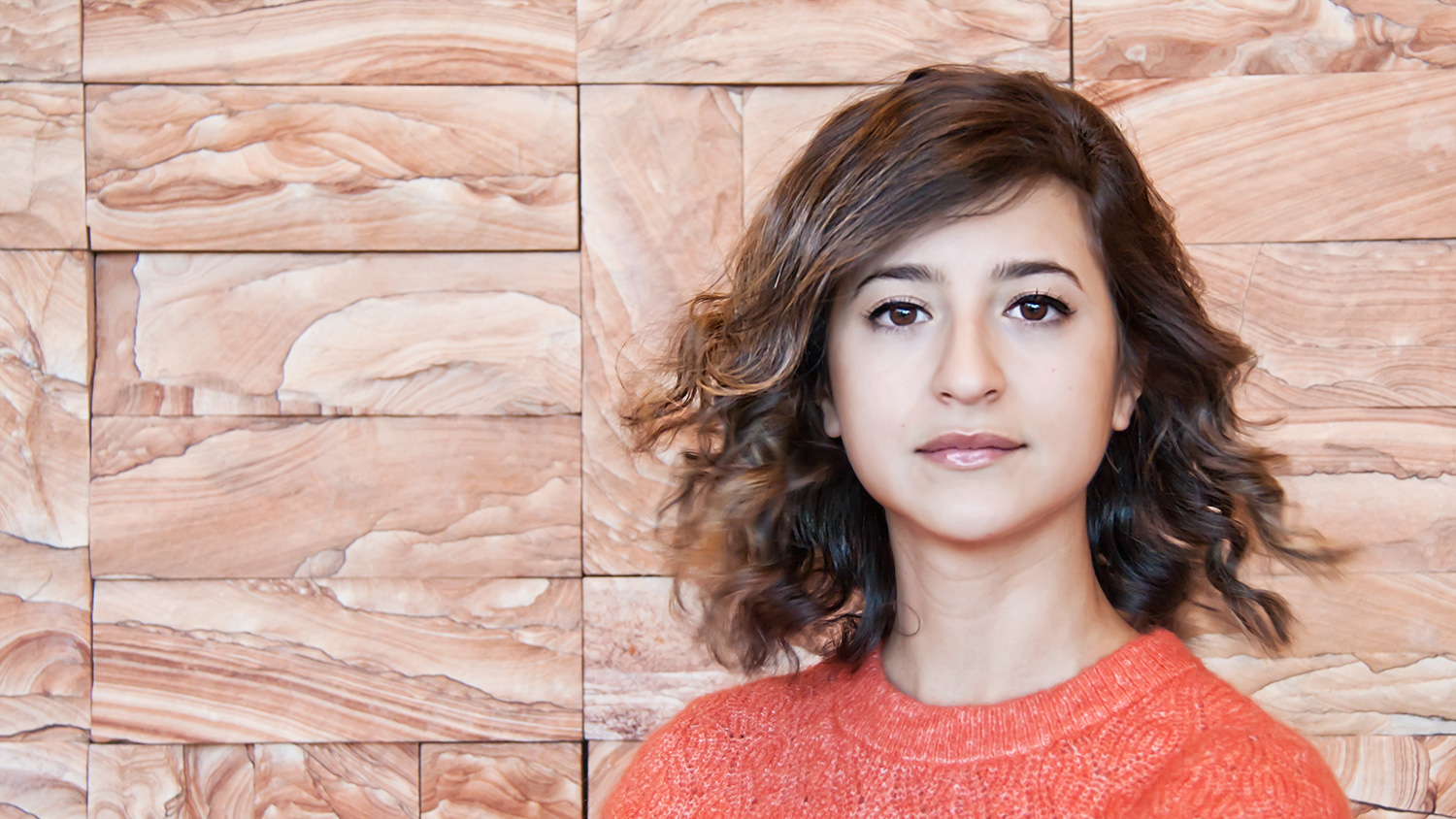
Yeah… I wasn't some cool nerdy kid. [laughs]
I loved dolls—playing with dolls. Barbie games. Tea parties. I loved tea parties. I liked dresses. I liked girly colors. I was never an outdoorsy type when I was young, honestly.
You didn’t go camping as a family, or engage with nature?
We went once with the whole Persian side of my family. And it was miserable. I hated it. Which is so funny because I love camping now. It was just all five of us in this tent. And it was raining. There were mosquitos. It wasn't my thing. It was miserable. Yeah… we weren't a very “do-things-together-go-outside-kind-of-fam.”
And yet, you’re a geologist.
I'm a geologist. Although, sometimes I get a little nervous because when you meet someone, and they say, “I'm a geologist,” you're thinking, “Oh, sweet! How do landslides work? What's that dam doing over there? Oh, cool! I can ask her about river incision!” Do you know what I mean? Those common questions. It opens up this huge field, and I don't think about that stuff. But that's what people relate to. So, I like to say I'm a petrologist, because that's really what I am. But, yes, I am a geologist.
So you not only identify as a geologist, but you also identify as a petrologist?
Absolutely. More so than geologist, I'd say. Even though petrology is a flavor of geology, I would say I'm a petrologist, more than a geologist. It feels more comfortable saying that. I don't feel like I'm lying or being a phony. I mean, yeah, I know a little… the basics of those things. But not enough to carry on an intelligent conversation about it. [everyone laughs]
Is going outside and engaging with nature while growing up a pre-requisite for this field?
I used to think that, but I don’t know. I don't have an answer for that. Some people do it because they like to be outside and like to camp. The people I went through undergrad with, they’re like, “I like camping dude.” That's why a lot of my friends were there. I was nervous on my first field trip, honestly. “I don't even know if I like camping. What if I have to poop? What am I going to do?” [everyone laughs] I don't know… I don't know what the pre-req is.
Are you naturally curious or do you find that the more you learn, the more curious you become?
Hmm. Well, that too, but I think when I was young I was also curious, as well. I remember, you know, the classic questions: Why is the sky blue? Why don't we fly off the planet? How does gravity work? You know, simple stuff like that. I was always wondering and pondering like, “How does that work?”
Did your parents influence those questions, or your path to geology, or science, in general?
My Dad had a lot to do with my path—finding science in the first place. He's an engineer, but he's definitely a science enthusiast. He inspired us to love science and be curious and always question our environment and nature. When we would have family dinners, we were never talking about how our days were, or “what happened to you today at work,” you know. It was always about science. My dad would be like, “OK, I just read an article in The Times, and they're talking about smashing protons in an accelerator and discovering crazy particles.” And, all of us were exposed to that super young.
My dad and my mom were also obsessed with the constellation Orion, and every time they'd stare up at Orion I was just like, “What does it mean to be human? We're insignificant—we're nothing.” I was having these philosophical thoughts even as a young girl, and that was the only thing that excited me. So I was like, “I’ve got to do science. I don't even know how, or in what capacity, or what field I'll choose, but I just know I have to do it.” So, I always knew I wanted to be a scientist. A Ph.D. in science was the dream, but I never actually pictured myself getting one. And I was actually a little bit afraid of even thinking about getting one because it just seemed like this daunting, scary thing that I didn't know really anything about—neither of my parents went to grad school or anything.
Do you still question life, even to this day?
All the time. I still think about all those questions I had. Absolutely. They just creep into my mind… while driving, or [during] human moments, or sometimes I'm camping and looking at the stars, or... gosh it happens a lot.
Is geology where you search for those answers now?
My science isn't even the vehicle anymore. It was intended to be, but no. They’re so separate now. That's more of a personal thing. And this is just fulfilling my everyday passion. You know... my geology… the science I do now, rather than this philosophical thing. That's just kind of... they’re separate.
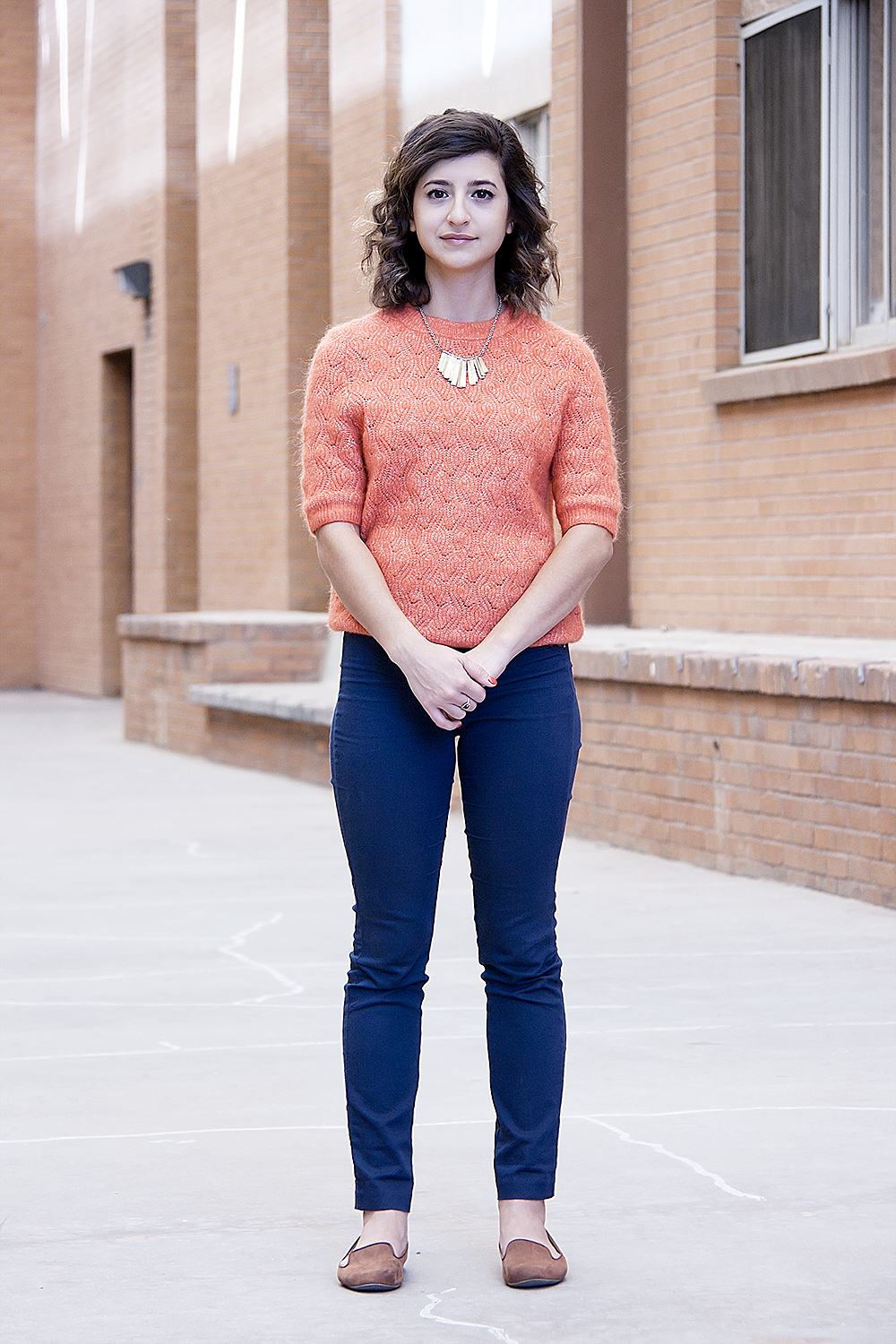
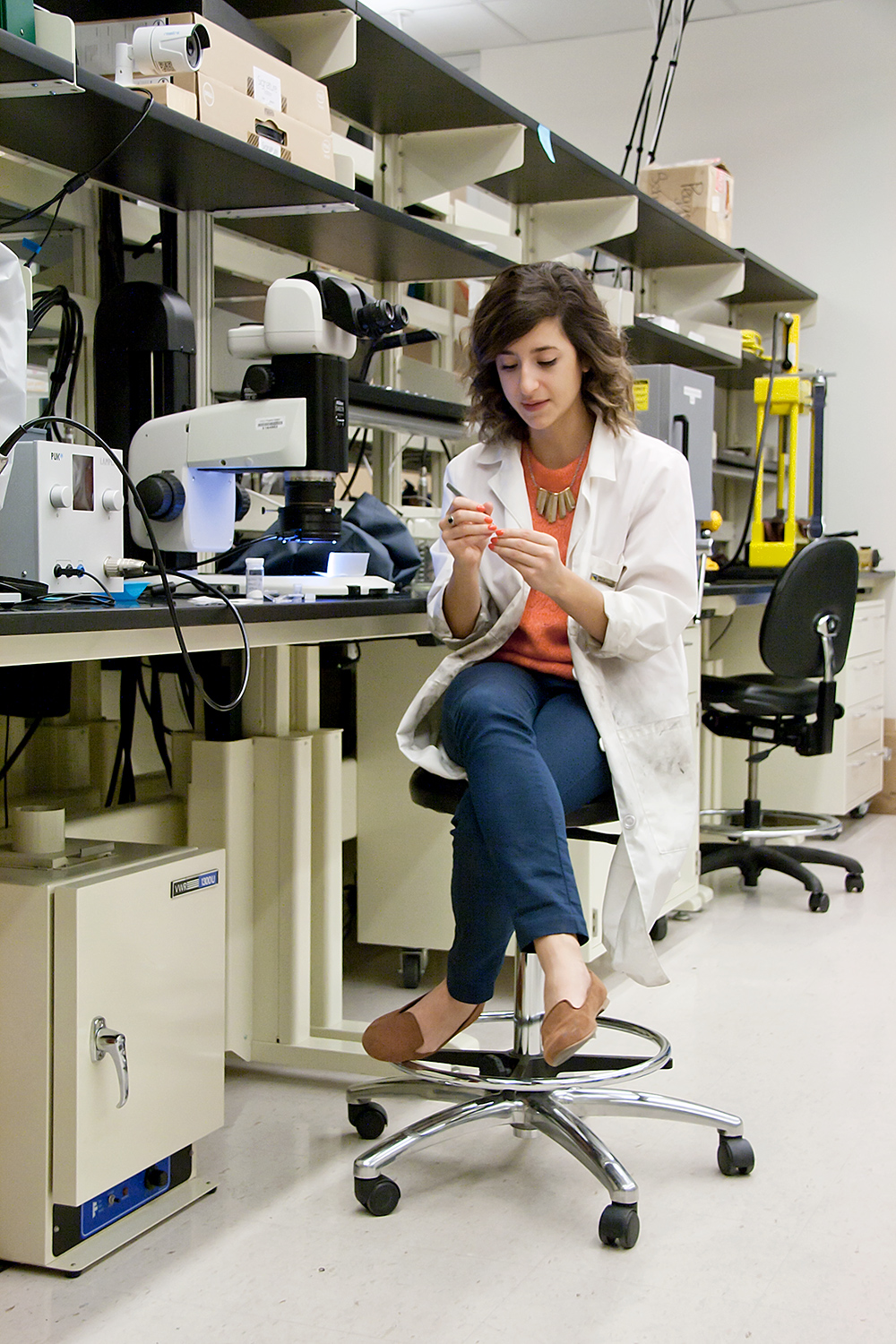
Has pursuing geology challenged any preconceived notions of science? Opened you up to thinking differently about...
... Yeah. I wish when I was young I knew that scientists weren't these Caucasian males that I thought were the only scientists...
... with beards? [laughing]
... and Khaki's, yeah. [laughing]
What is your idea of a geologist now?
Now… it's still kind of Caucasian. But, it's women. It's men. There's no face that represents it to me. I've met too many to have just one idea... and, maybe it's just because I am in a Ph.D. program but, I've met the most diverse people in my field. And, they're not all that stereotype that I once had. So, yeah, there's no face anymore. There used to be, for sure. Not anymore. Which is cool. It's something I've learned about scientists, they're not [just] this white, cisgendered beardy guy.
Earlier you talked about camping with the Persian side of the family. Is your cultural identity something that you keep up front? Do you make it known? How do you identify?
Mexican-Persian-American. There is always a part of me that wants to reveal this other side of my culture—the culture I was raised with: the Mexican side of my mom, and the Persian side of my dad. Most of it's culinary. My mom made amazing meals. She always cooked for us. Every night. Always had a home-cooked meal. It was awesome. I mean, we got Taco Bell every now and then [laughing], but she cooked a lot of Mexican food that her mom cooked. And she cooked a lot of Persian food that my dad and dad's parents cooked. So that was comfort food. And I think that's part of your identity… being exposed to these kinds of things. And then, you know, sometimes at certain holidays, where we spent it with the Mexican side of our family, there would be mariachi music playing. Or, you know, my Abuela, basically speaking Spanish in front of us. Not to us, but, you know, there's Mexican things always coming up when we're around. Food. Music. Her upbringing. Same thing on my Dad’s side. Food and music. There's Persian music and a way to dance to Persian music that we always grew up watching and doing. It's always food and music, I swear.
Do you think your bicultural upbringing or bicultural experience influences the way you approach science?
I think it influences the way I work with other people, which is a big part of science. Science is really collaborative, and interdisciplinary, and I think if you come from a background where you're exposed to different upbringings, or cultures, you understand people a little better. And I think that helps with understanding others and working with them. And if you work well with someone, then I think better science will come of it. Because half of it's communication. So, I think there's an influence there.
Is science communication something you like to engage in?
Absolutely… to some capacity. And whatever I end up doing for my career, I will be involved in some branch of science communication. To me it means outreach-oriented things. Like going to high schools, or middle schools, and talking about your science in a jargon-free, relatable way. And getting people excited about it.
Do you think it's important to talk about science in a jargon-free way?
Absolutely. It always impresses me when someone explains their research like that. I think as soon as you start talking jargon-y, you're going to turn off your audience. And then, you know, once they turn off, they really don't learn anything from you. That's never good. I see that all the time. Even in professional settings, like at conferences. Because I'm like, "I can't ask you good questions, if I don't understand what you're talking about. Speak my language." It actually pisses me off a little. When I go to special talks at conferences from big names in the field, I'm thinking, "Wow. This talk is going to be a slam dunk." And then I go and even those people aren’t breaking it down for the rest of us. And I'm like, “You're kidding. You know you've been doing this for maybe 20 years and you're still not breaking it down?” That's very frustrating. Because I want to... I want to be engaged. And there is a setting, you know, where you should use your jargon. But at a conference, where all geologists are represented, I think they should be conscious of something like that.
If you can communicate to other scientists, you'll get a lot more done, I think. More productive conversations, and more brainstorming. Because you're on the same page. It happens in my group. Christy encourages us to do that. Yeah… she's awesome. We're all petrologists, but we do very different things. So, you know, Meghan will be talking about arc volcanism, and I'll be talking hot spot volcanism. And we try to keep it... keep it relatable. I think you understand it better. Absolutely.
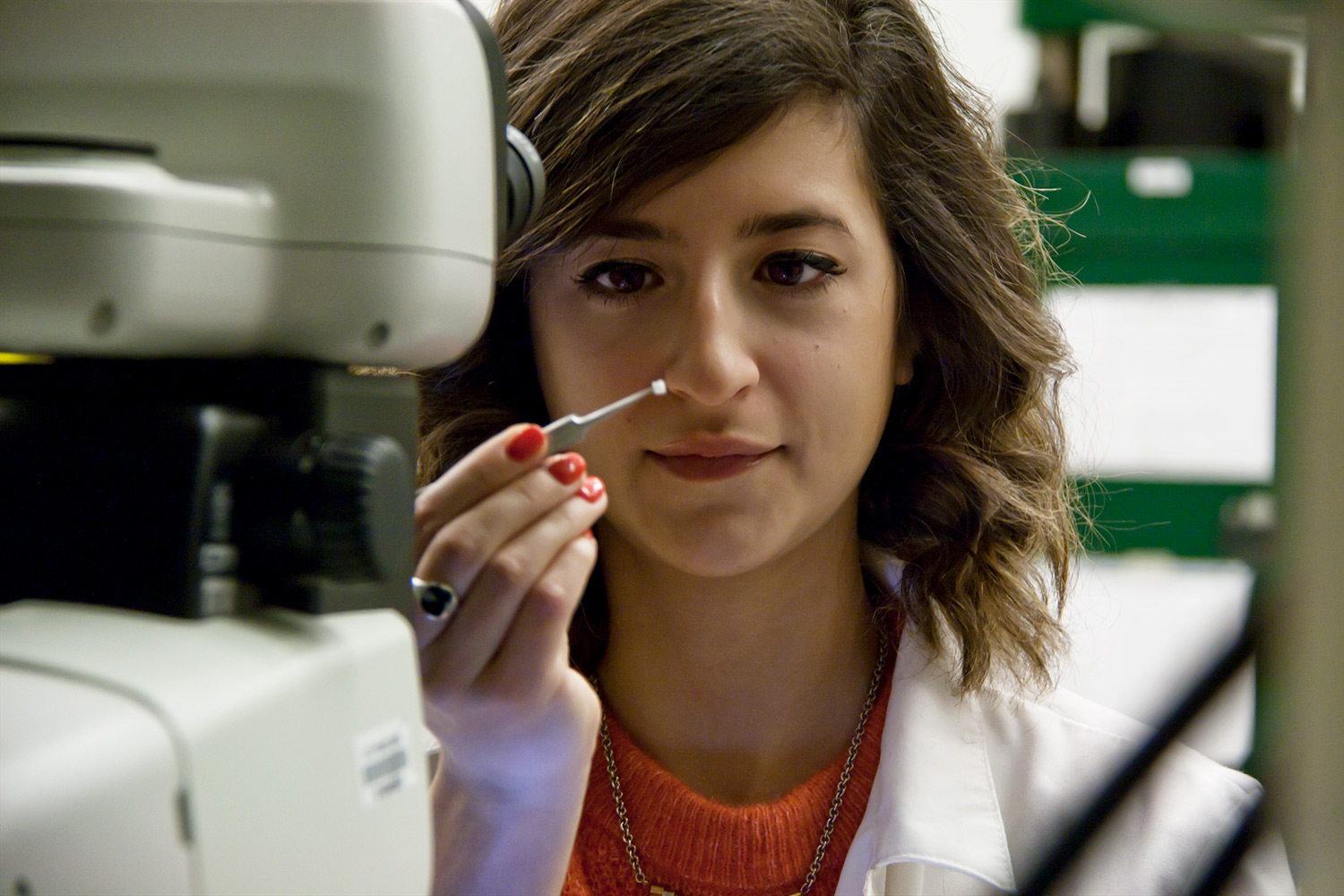
You're working within an almost-all women research group. What's it like to work with a group of women?
It’s nice… It's unique. I mean… I feel safe. Don't get me wrong. We challenge each other, and we're kind with each other, but we’re not easy on each other. Just because we are women and we have this emotional side, we're still very much like, “OK. What do you mean by that. That might be wrong.” You know? We're just not dicks about it. [everyone laughs] I think that’s the difference in being in an all female group.
What do you mean by “safe?”
Well, when I was a physics major, I didn't feel safe to raise my hand or say something or inquire about anything. I was the only female in my classes. And, the times I did raise my hand I was ignored.
You don't get that feeling now?
No. No. No. No. Which might be shaped by working with all ladies. Being a female scientist is definitely part of my identity, but I don't think about it as much anymore because I'm around female scientists all the time. You know what I mean? It's nice. I just don't think about it anymore. Which makes me a better scientist because then I can inquire, and ask questions, and make mistakes, and not feel super shitty about it.
The New York Times recently shed a little light on your research. Were you or your research group worried about how the work would be portrayed?
I think we were so worried that it was going to spin out. But, when we read the New York Times article, it was like, “Oh. That turned out great!” But the ones that followed… gosh, they were a little more dramatic. Because, if you read the headlines they were like, “Yellowstone’s going to kill us in decades!” It was overwhelming. I've never experienced anything like that. It's cool to see your name in The New York Times, but the others… I pretend they don’t exist. [everyone laughs]
Has it shaped the way you view science being disseminated to the public, through a non-scientific mouth?
Definitely. Definitely. Well first of all, it's astounding how one article gives all these other media outlets this fuel to write any-freaking-thing they want. None of those other outlets contacted me. They just went with it. All of these media outlets just claiming their own… whatever. I'm like, “I didn't say any of that. What are you doing? You didn't even contact us!” They don't have to, but you know, my naïve thought... I thought they had to. And then it made me realize like, “Damn. There is a problem here. I bet this happens all the time to people's science.” You know, biology. Or, a new study on cancer, or something. I bet that happens all the time. Which sucks, because you're not telling the real deal. And also, the intentions are wrong. The intention of these outlets are, “Hey! Let's get people listening and paying attention to our stories.” Right? It's about them, not about the science. It's what sells. That sucks. But that's life. The world we live in.
Again, science communication is important to you.
I think science communication, in general, is very important, obviously, with my experiences with the press and all that. But even before that, it was always important to me to inspire young scientists, or young people to become scientists, and just to get the public in a good acquaintance with science.
You’re involved in outreach, aren’t you?
Yeah. I do a ton of outreach. It's a big part of my mission, as a grad student—huge part of my mission as a scientist. I think it's really important. So our lab does a bunch of outreach events, where we have, you know, these demos—we make these salt and pepper rocks. And we let the kids (or any age group really) make a little mixture of salt, pepper, and glitter. And then they hand us that loose mixture and we use a small hydraulic press, and we put it under high pressure. And we explain how the mantle's at high pressure, and how rocks are formed. And then we give them back their little pill-shaped rock, and they go crazy over it. So we do demos like that.
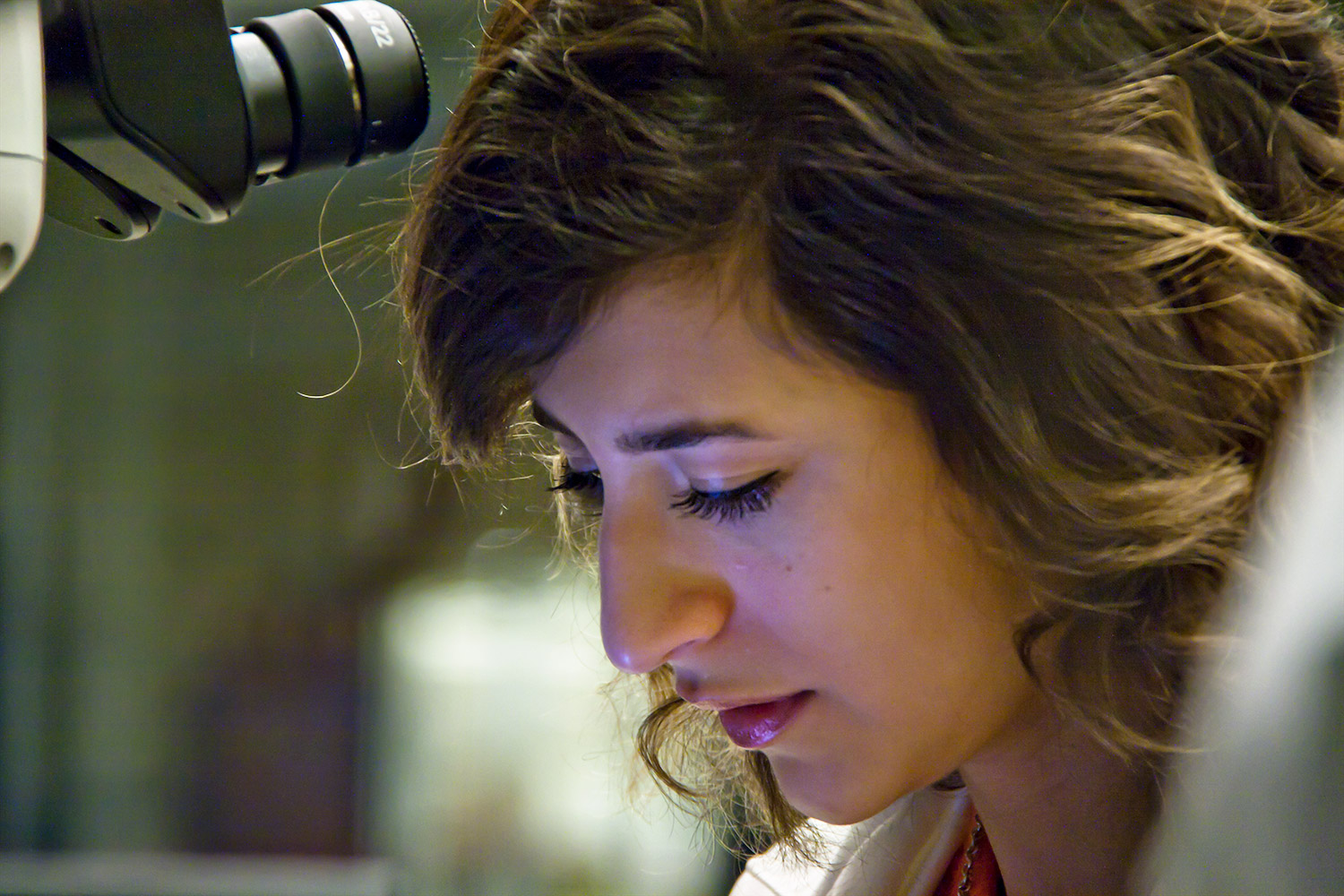
So, why pursue geology? Why not physical chemistry or something?
Well, the cool thing about geology is that it's got chemistry in it. I didn't know that at the time, but...
... You also knew people in the geology program.
I knew people, yeah.
You were pursuing physics before geology. Do you think if you didn't know anybody in it, you wouldn’t have made that switch?
I'm afraid that I might not have. I hope I would have found it, but I might not have, yeah. Which is scary. But, God, thank the Lord if there is one, because if I [had stayed] in that physics program, I'd be a very miserable person. But, I found it. Thank god. This is it for me—I'm passionate. I feel guilty saying that, though, because some people don't ever find that. Right? Like, this is it. I found my calling. Not everyone finds their calling. I'm not saying I'm incredible at it. I'm just saying this makes me happy.
But, you do see it as a calling?
Well, does a calling imply that, “I'm good at this, I'm going to do it?” Because to me, that's kind of what that means. I'm not going to claim that, but I will claim that this is what I want to do for the rest of my life. [laughing] Do you know what I'm saying? Semantics. [laughing] I think I'm good at it now. I guess that is what I'm saying. It did come naturally, but I didn't know it would.
Did geology choose you then, or did you choose geology?
I think geology chose me. That moment I had when I was learning about Plate Tectonics, I was just like, “Holy shit! I didn't know the Earth was like that! That's Incredible!” And then… I had mentors. I had influence to get where I am today. It was not all me. I wish I could say that. But, no, it definitely wasn't.
Why do you wish you could say that?
I think it would be a proud thing to be like, “Yeah, I found this, and I'm conquering it.” But, I had a lot of help getting here.
Did your passion for geology develop over the years, prior to Geo 101?
I think it was from 101 and on. I mean, there were geology classes that I wasn't passionate about. But, anything concerning magmas, or plate tectonics, or the interior of the Earth… going from interior to exterior of the earth, that stuff, yeah, definitely. I've always had a passion for it since I started learning about it.
You were originally pursuing physics, right? What led you to physics?
This naïve belief that... well, not totally naïve, but… after seeing movies like Contact and reading about Carl Sagan and things like that, I figured physics was going to be the vehicle in which I found my answers. Not even in just being a scientist, but like my personal “What's my place in the universe?” kind of answers. I was convinced. I thought it would be astrophysics too, so I pursued that in college. I continued with it for about two-and-a-half, almost three years. And then a couple of things happened. I participated in an internship for electrical engineers making a seismometer. And I was thinking, “Cool! I'll gain some electrical engineering! I'm going to learn how to use my hands and tinker with things!” It was just a three-week camp, but one afternoon out of that whole three weeks we talked about plate tectonics and earthquakes and all of this theory about geology and it just blew my mind. I'm like, “How did I not know this stuff existed! I love planets, why have I never thought of them this way! Like, they're dynamic! And, alive!” And that just kind of changed everything. I don't know what happened but it just clicked and I was like, “I'm switching to geology.”
Were you aware of plate tectonics and geology prior to that moment?
I was not aware that it existed. We didn't have earth science in my high school. Or if we did, I didn't take it. We had chemistry and we had physics. And I loved my physics class. But, we never talked about earth science. Maybe I took an oceanography class. We were learning about starfish and whales. [everyone laughs] But, I have to say... I had to have been aware of it. Because, I always had these universe books that talk about planets. But, I never thought of it as geology. I just thought, “Wow. Planets are sweet!” I was obsessed with the solar system. And Uranus. And Neptune. And how they are all different. And one was tilted. And one was gassy. I thought of planets that way. But never... never like geology, or thinking about our own planet for some reason. I never looked down. I always looked up and away. I'm in the interior of the earth now. Oh yeah. I'm looking in. That's all I think about.
Speaking of looking in… Is there anything you know now, that you wished you knew back then?
Not to put myself down, but you know, I'm not a genius by any means. I never considered myself above average. I just love what I do and I work very hard. And so I think if you have those two things, you can do... you can do science. You don't have to have this stellar IQ and be a social recluse. You just have to love what you do and be willing to work really hard for it. And that's what I wish I knew earlier on. Because I thought I had to be someone I wasn't, and kind of tone down who (sic) I was. And, I don't think that's the case.
Hannah Inés Shamloo is currently a Ph.D. candidate in the School of Earth and Space Exploration at Arizona State University. Hannah holds a Bachelor of Science degree in geophysics from California State University, Northridge.